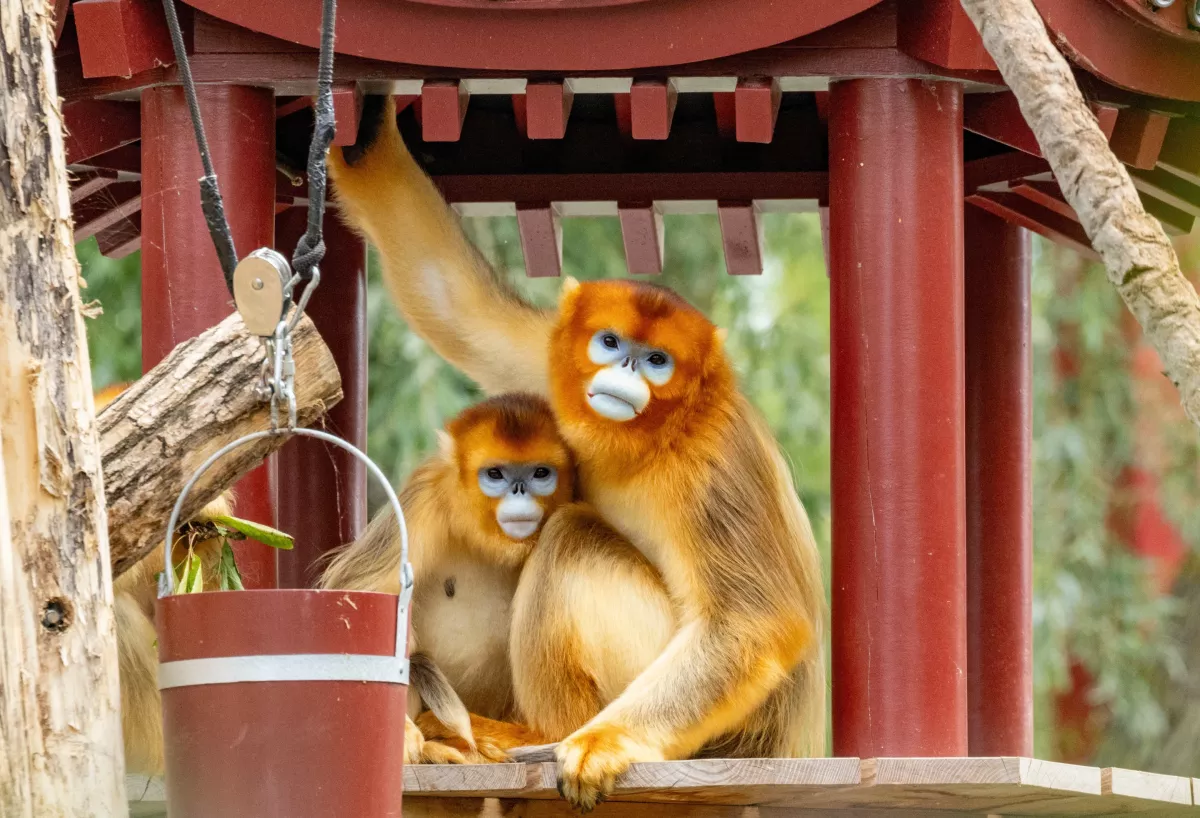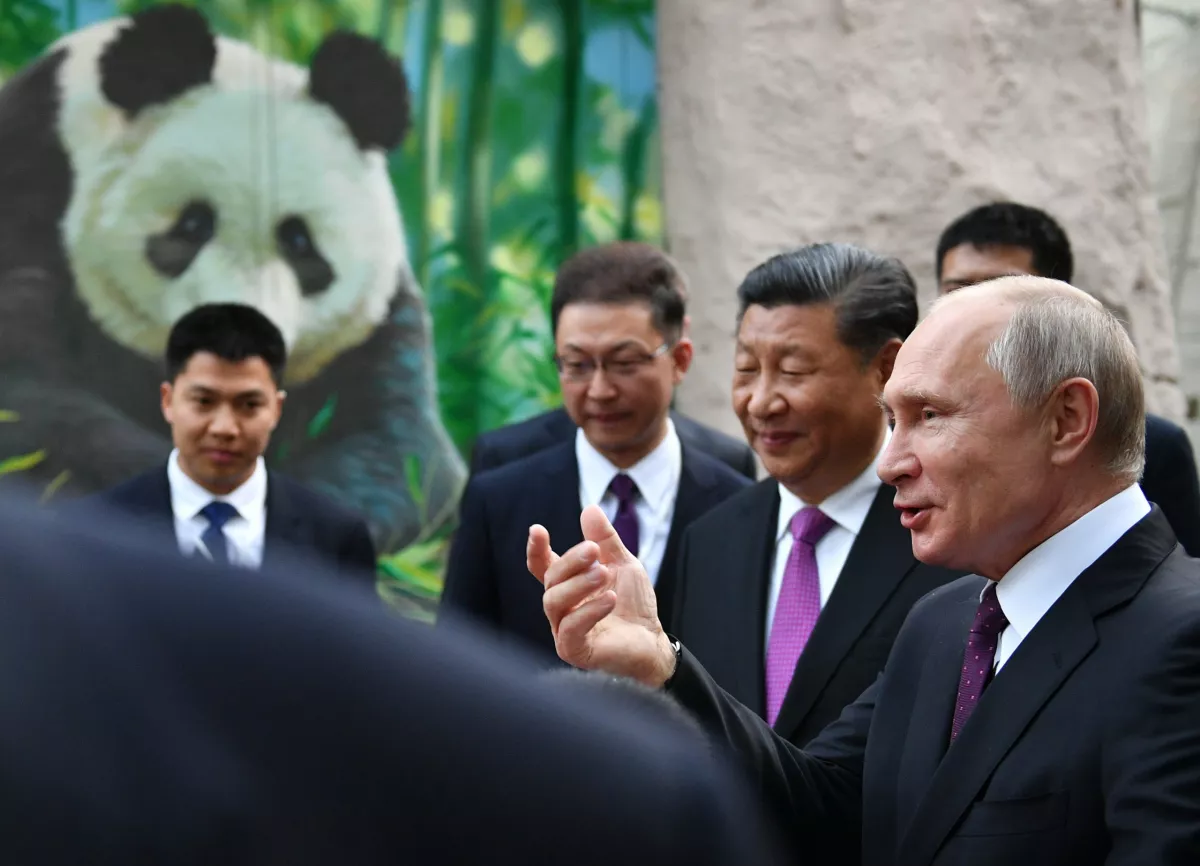China's soft power breakthroughs at European zoos Switching from “panda diplomacy” to golden monkeys
Several of China’s endangered golden snub-nosed monkeys have made their public debut in European zoos for the first time this year, signalling a new opportunity for conservation and scientific collaboration between China and Europe, and continuing the tradition of China’s “panda diplomacy.”
The monkeys, known for their distinctive golden fur and unique facial features, were recently revealed to the public after completing quarantine periods in French and Belgian zoos, according to an article by AP.
Three golden snub-nosed monkeys arrived at France’s Beauval Zoo in Saint-Aignan in April, marking the 60th anniversary of diplomatic relations between China and France. A second group arrived at Belgium’s Pairi Daiza zoo in Hainaut in May.
“The diplomatic aspect comes from this cultural awareness,” said Pairi Daiza spokesperson Johan Vreys. The initiative is also intended to foster long-term scientific partnerships between the zoos and Chinese authorities, according to Anaïs Maury, communications director for Beauval Zoo. Maury added that the zoo is discussing joint research and conservation programs “similar to those already in place for other emblematic species like pandas.”
The golden snub-nosed monkeys now housed in France and Belgium are the only individuals of their kind outside Asia. Like pandas, these monkeys are endangered and considered national treasures of China. Their movement outside the country requires approval from the central government. However, unlike pandas, golden snub-nosed monkeys also have deep cultural significance in China, appearing in traditional paintings and literature, most famously as the Monkey King in the 16th-century novel Journey to the West.

Pandas became symbols of modern China in recent decades, partly due to their “cuddly cuteness” and strategic use in diplomacy.
The first notable case of panda diplomacy involved Ping Ping and Qi Qi, sent to the Soviet Union in 1957 to commemorate the 40th anniversary of the October Revolution. In 1972, pandas were sent to the United States following President Richard Nixon’s visit to Beijing, and by 1984, China shifted from gifting pandas to providing long-term loans.
China's "panda diplomacy" has eased tensions in recent times as well, with situations for negotiations created during tense times, ranging from Xi Jinping's visit to Moscow's Zoo with Russian President Vladimir Putin as well a similar visit to Berlin's park with then-Chancellor Angela Merkel.

Under these loan agreements, overseen by the China Wildlife Conservation Association, part of the annual fee paid by a zoo is earmarked for habitat conservation or scientific research, and any offspring of the pandas must be returned to China. This framework ensures that overseas exhibition of endangered species contributes to conservation efforts.
In China, golden snub-nosed monkeys inhabit central and southwestern provinces, including Sichuan, Shaanxi, Gansu, and Hubei. At Shennongjia National Park in Hubei, conservation initiatives dating back to the 1980s have tripled the local population to around 1,600 monkeys, according to Yang Jingyuan, president of the Academy of Sciences at the park.
The arrival of these monkeys in European zoos offers scientists the chance to expand research and monitoring programs outside China, while also introducing the public to a species previously unfamiliar outside its native habitat. Maury emphasized that the collaboration aims not only to raise awareness but also to strengthen conservation knowledge and practices globally, following the model successfully established for pandas.
By presenting the golden snub-nosed monkeys in Europe, China is extending its soft power strategy and highlighting its commitment to species preservation, cultural exchange, and international cooperation.
By Nazrin Sadigova








